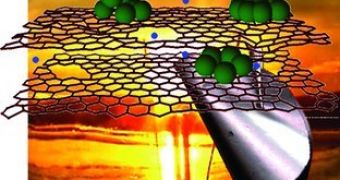Short battery life is one of the main things about portable electronics that can really hurt a device's appeal, but such concerns may go away because of what Northwestern University made.
Northwestern University may have solved, or at least greatly reduced, the problem batteries of today have.
Granted, it isn't so much a problem as a limitation: though efficiency varies, the time it takes for a battery to be depleted isn't exactly impressive right now.
Lithium-ion batteries are utilized by a lot of things too, like cellphones, laptops, electric cars, etc.
The new technology invented by the aforementioned researcher team claims to boost battery life by a factor of ten.
The paper also says that the battery will still be about five times more efficient than today's batteries after 150 charges (more than one year of work).
Put in terms everyone will be able to get a good idea out of, that would allow for batteries that charge in 15 minutes and last for a week before needing to be plugged in a power source again.
“We have found a way to extend a new lithium-ion battery’s charge life by 10 times,” said Harold H. Kung, lead author of the paper.
“Even after 150 charges, which would be one year or more of operation, the battery is still five times more effective than lithium-ion batteries on the market today.”
Graphene and silicon were combined (two graphene sheets sandwiched clusters of silicon between them).
The result was an increased number of lithium atoms in the electrode (the graphene allows the silicon to expand and contract as it requires).
“Now we almost have the best of both worlds,” Kung said. “We have much higher energy density because of the silicon, and the sandwiching reduces the capacity loss caused by the silicon expanding and contracting. Even if the silicon clusters break up, the silicon won’t be lost.”

 14 DAY TRIAL //
14 DAY TRIAL //